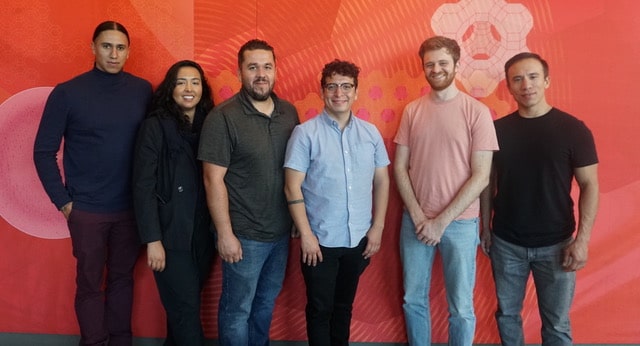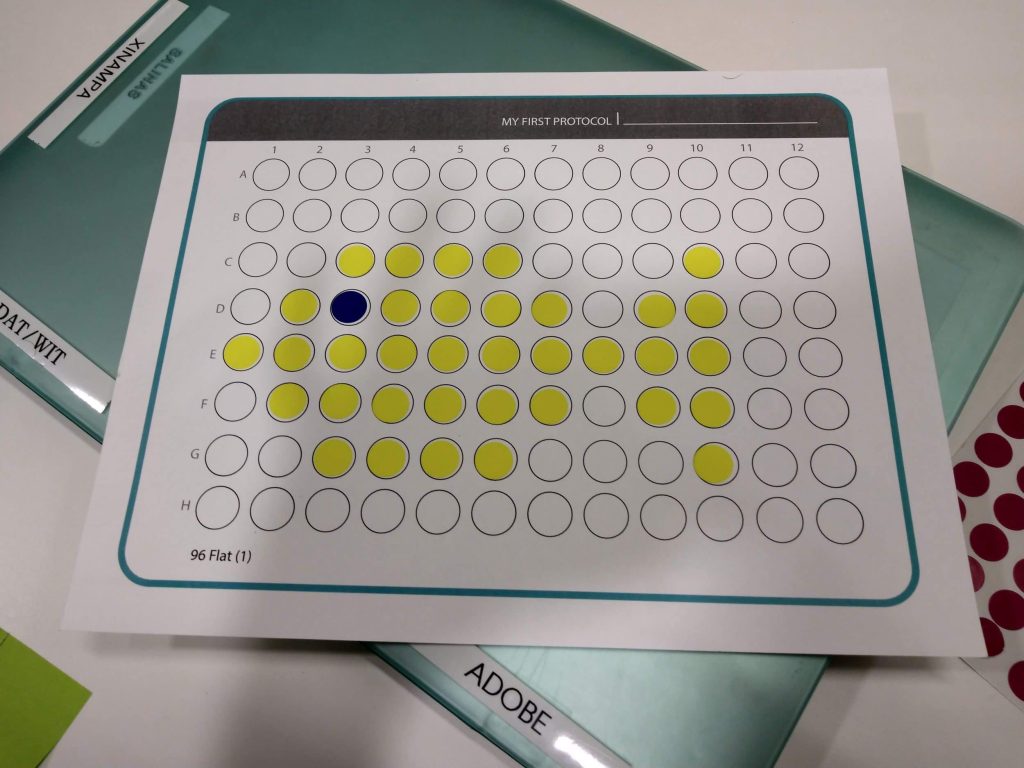-
article · 2026Year9Moon29Day
Flex蛋白质组学工作站的功能与优势
Read More -
article · 2025Year13Moon27Day
Opentrons Flex蛋白质组学工作站:提升实验室效率的秘密武器
Read More -
article · 2025Year42Moon26Day
Flex 工作站在蛋白质组学实验中的最佳实践是什么?
Read More


As I drove my motorcycle south on Highway 101 toward Salinas, I sat and thought about the city for the first time since moving to the Bay Area from San Diego a year and a half ago. Until then, Salinas was just another name to me with a number on a green highway sign next to it depicting the distance to the city on my route to other destinations like Monterey. But, as I recently learned, Salinas is more than just a name on a sign. The local economy is dominated by agriculture. The fertile soil produces more than 80 different varieties of fresh produce, earning Salinas the nickname "The Salad Bowl of the World." The fresh produce supply chain stretching from the Salinas Valley to Chile has made the region the “Meeting of the Americas.” As I got closer to Salinas, the landscape changed dramatically. Trees and buildings were replaced by endless fields. There is a farm smell in the air that reminds me of my childhood in rural Michigan. But something else is happening in Salinas: a movement that has some wondering whether the Salinas Valley is the next Silicon Valley — but a better, fairer, more productive version.
The intersection of ancient agriculture and biotechnology
Driving the idea is an organization called Xiampa (she-nam-puh), named after the ancient agricultural system of Anahuac that uses a holistic approach to cultivate complex intersectional ecologies for sustainable food production and despite political, economic and environmental challenges. Xinampa began as a community laboratory and grew into what we know as Xinampa today: a biocenter designed to support economic development, workforce development, small business incubation, and scientific literacy and education.

From left: Steven Raines, Ana Ibarra-Castro, Leo Tejeda, Omar Perez, Matias Kaplan, Rolando Perez. Photo Credit: Steven RainesSalinas natives Ana Ibarra-Castro, Omar Perez, Steven · Steven Rhyans, Leo Tejeda and Rolando Perez volunteer in Xiampa to uplift the local community. They and volunteer Matias Kaplan believe the Salinas Valley, with its rich agricultural heritage, is the perfect place to model an equitable biotech revolution.
“Agriculture is about biology,” Ibarra-Castro said. "I am very interested in using biotechnology to improve food systems and the safety and security of populations involved in food production. The complexity of our food systems will only increase in light of climate change." She also emphasized the importance of interdisciplinary collaboration and inclusion of public voices sex. “Finding new ways to include the public – their needs, voices and expertise – may be beneficial in supporting bioeconomy infrastructure. While we cannot accurately predict how our world will be affected in the long term, work is needed More inclusive conversations. Spaces like Xinampa can be a conduit for these discussions and an entry point for the workforce to access research and entrepreneurial opportunities. I envision a world that fosters local talent and maximizes local needs, challenges and opportunities. Links between solutions “Food systems face challenges,” Rains added. “Biotechnology can also help inspire young people in our region to learn more about the local agricultural industry and even pursue a career in agriculture.

Growing up in Salinas, I wish I had more exposure to local industry. “Local synthetic biology can equitably enhance the Salinas Valley bioeconomy through food testing and safety, fermentation and other things you might see in Silicon Valley. Imagine if you brought next-generation sequencing and other biotechnologies to local community labs," Perez said. In fact, one of Xinampa's core values is engaging underserved communities like Salinas. 75 out of a population of 156,00 % Above are the Hispanics or Latinos whose future in this city is driven by traditionally underserved populations who have gained enfranchisement through Xinampa and learned not to fear science and technology but to transform it, at its foundation. development and use it to transform their communities.
"This is not about disrupting or replacing," Ibarra-Castro said. "We want to uplift existing communities through techniques of equitable governance and teach young people to be leaders looking to the future." ” adding, “In a circular economy, it is underserved communities that ultimately implement change. " His company recently donated an OT-2 liquid handling robot to Xinampa. Opentrons is democratizing biotech with robots that can be easily programmed through Python or an easy-to-use interface - all protocols are free, publicly available, Shareable and editable. That's why I headed to Salinas one December afternoon: to attend an agriculture-focused biotech workshop for local high school and community college students interested in computer science and biotechnology.
Sow seeds for the next generation
The workshop was held at Digital Nest, an organization that connects young people with a skills-building community, transforming them into professionals capable of creating successful careers, innovative solutions and thriving communities. I parked my bike and walked through the Cesar Chavez Library to the back room, which had tables, snacks, computers, chairs and desks, some students hanging out and talking, and of course, OT- 2 robots (sat comfortably next to the library). First generation OT-1). At 3:30 p.m. sharp, four students (one first-year student, one second-year student, and two third-year students) gathered at the Digital Nest Salinas site with lead learner Franco Sanchez and three others to support the workshop people around. The workshop was thoughtfully co-designed by artist and independent science, technology, engineering, arts and mathematics (STEAM) educator Corinne Takara, as well as Xinampa volunteers. The agenda for the first day of the four-day workshop included: sharing ideas about science and culture, tasting kombucha, learning how to manually pipette, getting to know the OT-2 robot, and creating animal design plate diagrams on a 96-well plate. Over the next few days, students will learn to program the OT-2 robot to automatically create animal designs and solve kombucha flavor problems on real 96-well plates.

Young people learn the art of manual pipetting. Image credit: Rolando PerezStudents laugh at 'germ farts' as they try kombucha. They quickly learned how tedious and annoying manual pipetting can be. Their attention was particularly piqued when they learned about the OT-2—especially when they watched a video that demonstrated how a creative person asked Amazon's Alexa to tell the robot what to do.
Next, students learned about Opentrons’ OT-2 liquid handling robot. Photo credit: Rolando PerezAt the end, they laugh and chat as Foster the Peoples’ “Pumped Up Kicks” plays in the background, while designing a fish, turtle and wolf. I'm sorry that I won't be able to attend the next few days, when students will see how easy it is to use OT-2 and, more importantly, how they can use their culture, creativity, and biotechnology to solve problems facing their own communities some of the biggest questions.

Students design animals on 96-well plate diagrams. Later in the workshop, they learned how to program the OT-2 robot to create animals on a real 96-well plate. Photo credit: Embriette HydeThis isn’t just a pipe dream. This is reality. Salinas is forming a perfect ecosystem of agtech, biotech, capital and trends in a circular economy that avoids waste and favors sustainability. “The social capital is there,” Ibarra-Castro said. "It's just waiting for indigenous practitioners with the critical insights to develop these products. Equity is one of our core values, so we can learn how to build a bioeconomy where everyone can thrive. We want these community members to be the next generation A generation of entrepreneurs leading the way in biotech on the Central Coast. "This project aligns with our mission to empower people by giving them the sophisticated tools to create change and democratize biology," Canine said.
“I’m excited to be a part of it.” The students — who were initially a little timid and reserved — are also excited to be a part of it. “Ever since I studied enzymes in school, I’ve really enjoyed the biology part,” said workshop participant Isabella Valdez. “It would be really cool to combine biology with my interest in computer science.” That night, as I drove home from Salinas, it was too dark outside to see the farmland. Instead, my eyes were greeted by a massive mural covering all the visible walls of a rather large warehouse. In the middle are the words: "California Salad Bowl," alongside a drawing of a bowl filled with fresh produce. I smile to myself as I think about how the salad bowl of the world could become the next lifeblood of biotechnology. California. Salinas, I can’t wait to see what you have to offer!
The experienced service team and strong production support team provide customers with worry-free order services.

简体中文

繁體中文

English

日本語

한국인